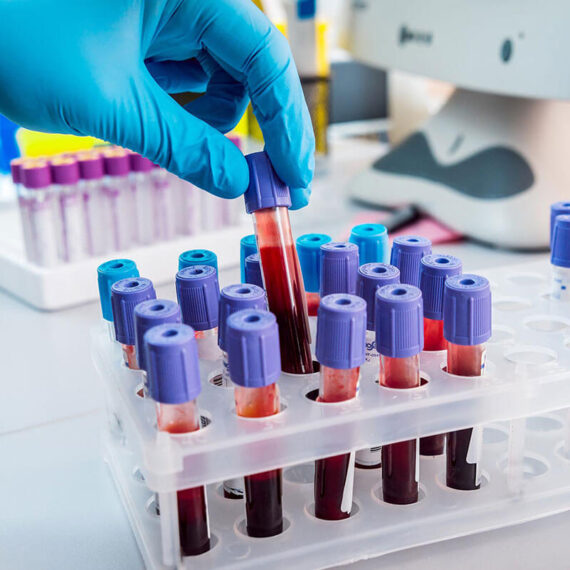Call the Lab:
+234 810 156 6324
Location:
7 Junvon Close, Ogbaku
Owerri-West LGA, Imo State, NG
Hours: Mon - Fri:
8am - 5pm
Sat: 9am - 3pm | Sun: CLOSED
- Home
- About Us
- Services & Packages
COVID-19 Testing Solutions
Nucleic Acid Amplification SARS Co-V2 and the Transcription Mediated Amplification (TMA) methodologies are used in this test. - Research
- News
- Contact Us
The Background
Pre-COVID-19, individuals with tuberculosis (TB) in Nigeria were often underdiagnosed and untreated. TB services were mostly in the public sector with only 15% of new cases in 2019 reported from the private sector. Reports highlighted challenges in accessing care in the private sector, which accounted for 67% of all initial care-seeking. Our study examined patients’ health seeking pathways for TB in Nigeria’s private sector and explored any changes to care pathways during COVID-19.

Methods
We conducted 180 cross-sectional surveys and 20 in-depth interviews with individuals having chest symptoms attending 18 high-volume private clinics and hospitals in Kano and Lagos States. Questions focused on sociodemographic characteristics, health-seeking behaviour, and pathways to care during the COVID-19 pandemic. All surveys and interviews were conducted in May 2021.
Results
Most participants were male (111/180), with an average age of 37. Half (96/180) sought healthcare within a week of symptoms, while few (20/180) waited over 2 months. Individuals testing positive for TB had more health-seeking delays, and those testing negative for TB had more provider delays. On average, participants visited two providers in Kano and 1.69 in Lagos, with 61 of 180 in Kano and 48 of 180 in Lagos visiting other providers before the recruitment facility. Private providers were the initial encounters for most participants (60/180 in Kano, 83/180 in Lagos). Most respondents (164/180) experienced short-lived pandemic-related restrictions, affecting access to transportation, and closed facilities.

Prior to the COVID-19 pandemic, TB in Nigeria was often underdiagnosed and untreated.
The private sector accounted for 67% of initial care-seeking, but only 15% of new TB cases in 2019 were reported from this sector.
Challenges in accessing TB care in the private sector have been reported in Nigeria.
Previous studies have focused on health-seeking and provider delays in accessing TB care.
Gaps in accessing TB care, including individuals who never access testing or are not diagnosed or treated, have been identified as major challenges in TB control in Nigeria.
This study showed a few challenges in accessing TB care, necessitating continued investment in healthcare infrastructure and resources, particularly in the private sector. Understanding the different care pathways and delays in care provides opportunities for targeted interventions to improve deployment of services closer to where patients first seek care.
Quick Contact
If you have any questions or need help, feel free to contact with our team.
Send Us Email:
Call Us Today:
© 2024 Junvon Medical Laboratory & Diagnostic Services, All Rights Reserved.







